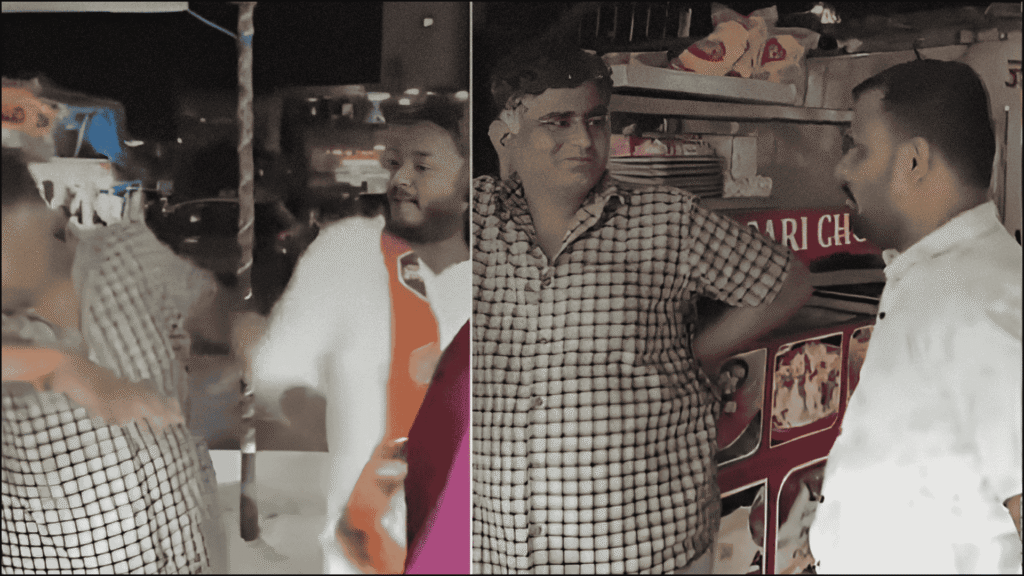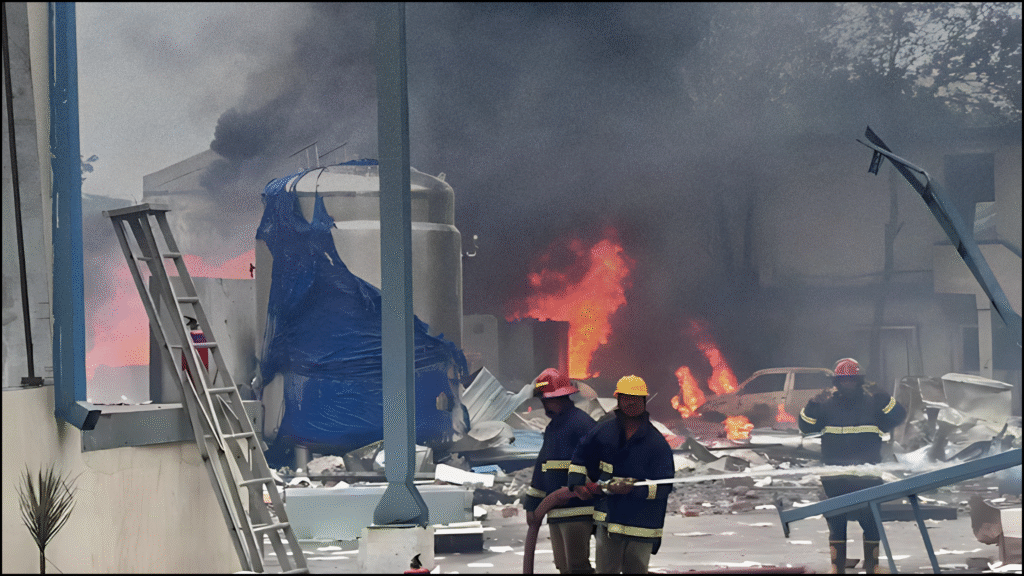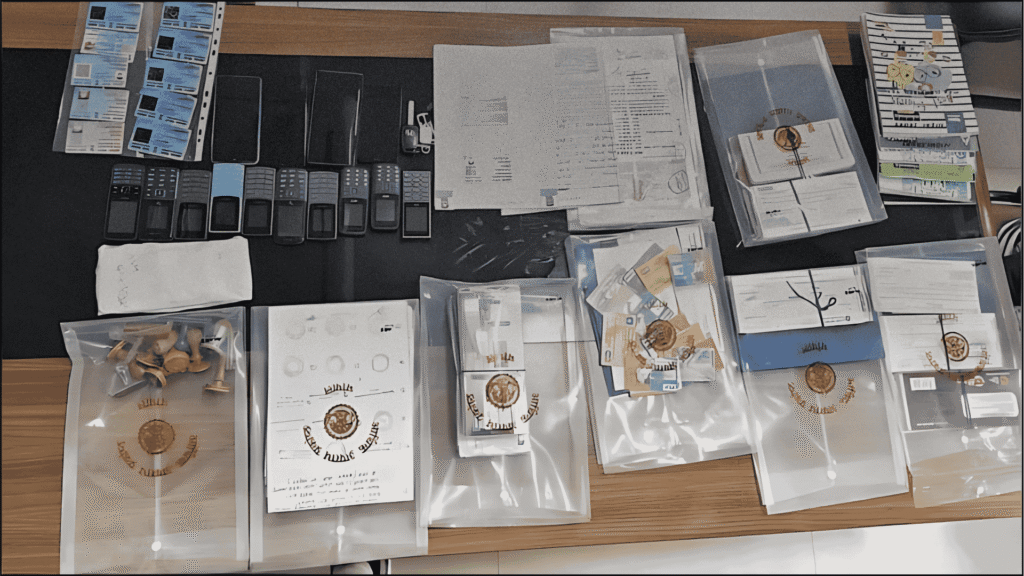On June 29, 2025, a disturbing incident in Mumbai’s Mira Road area brought the issue of linguistic identity in Maharashtra into sharp focus. Seven members of the Maharashtra Navnirman Sena (MNS), a regional political party led by Raj Thackeray, were arrested for allegedly assaulting a shopkeeper, Babulal Khimji Chaudhary, for not speaking Marathi. The attack, captured on video and widely circulated online, has sparked outrage, protests, and a heated political debate. Maharashtra Minister Nitesh Rane condemned the act, urging the MNS to take their language enforcement to Muslim-dominated areas like Mohammed Ali Road, while warning of a strict government response. This incident raises critical questions about linguistic inclusivity, regional identity, and the role of political outfits in enforcing cultural norms.
The Incident: A Viral Video and a Brutal Act
The altercation took place at Jodhpur Sweets and Namkeen, a shop owned by 48-year-old Babulal Khimji Chaudhary in Mira Road, a suburb of Mumbai. According to the First Information Report (FIR) filed at Kashimira police station, seven individuals, some wearing MNS scarves, entered the shop around 10:30 PM, requesting water. When a staff member, Bagharam, a migrant from Rajasthan, responded in Hindi, the group demanded that only Marathi be spoken. Chaudhary’s defense—that “all languages are spoken in Maharashtra”—escalated the situation, leading to verbal abuse and physical assault. The MNS workers filmed the incident, proudly sharing it on social media, which amplified public outrage.
The video shows the shopkeeper being slapped repeatedly while being berated for not prioritizing Marathi. MNS’s Mira-Bhayander district president, Santosh Rane, justified the act, claiming the shopkeeper’s “arrogance” provoked the assault. This unapologetic stance has drawn sharp criticism, with many questioning the use of violence to enforce linguistic preferences.
Political Reactions: Nitesh Rane’s Controversial Stand
Maharashtra Minister and Bharatiya Janata Party (BJP) leader Nitesh Rane responded with a provocative statement, condemning the MNS for targeting a “Hindu man” while questioning their courage to enforce Marathi in Muslim-dominated areas like Null Bazaar or Mohammed Ali Road. Rane’s remarks, such as “Do Javed Akhtar or Aamir Khan speak Marathi?” stirred further controversy, framing the issue in communal terms. He emphasized the state government’s Hindutva ideology and warned that its “third eye” would be awakened if such attacks on Hindus continued.
Other political figures also weighed in. Pratap Sarnaik, a leader from the Eknath Shinde-led Shiv Sena, criticized the MNS, asserting that no single party has a monopoly over promoting Marathi and that targeting working-class individuals is unacceptable. Meanwhile, Shiv Sena (UBT) MLA Aaditya Thackeray appeared to echo MNS sentiments, highlighting the complex political dynamics at play. The incident comes amid a broader debate over language policy, following the Maharashtra government’s recent rollback of a three-language formula perceived as “Hindi imposition.”
Legal and Social Fallout
The seven MNS workers were detained on July 3 but released within hours on bail bonds, as the charges under the Bharatiya Nyaya Sanhita (BNS) for spreading unrest carry a maximum punishment of less than seven years, making the offense bailable. This swift release, despite video evidence, has raised concerns about the state’s handling of politically sensitive incidents.
The assault triggered widespread protests, with traders in Mira Road shutting shops on July 3 to demand protection and accountability. Social media platforms, particularly X, buzzed with reactions, with some users condemning the MNS’s actions as “linguistic intolerance” and others debating the broader issue of Marathi pride versus inclusivity. One X post described the incident as a symptom of “extremist Hindutva ideology,” though such claims remain contentious and unverified.
The Bigger Picture: Linguistic Identity in Maharashtra
This incident is not isolated but part of a recurring pattern of language-related tensions in Maharashtra. The MNS has a history of aggressively promoting Marathi, often targeting non-Marathi speakers, particularly Hindi-speaking migrants. In March 2025, MNS workers assaulted a supermarket employee in Versova for refusing to speak Marathi, indicating a pattern of such behavior.
The push for Marathi stems from a deep-rooted sense of cultural pride, as Marathi is the state’s official language with a rich history. However, Maharashtra, especially Mumbai, is a cosmopolitan hub where Hindi, English, Gujarati, and other languages coexist. The MNS’s actions raise questions about the balance between preserving regional identity and fostering inclusivity in a diverse state. The recent “Hindi imposition” controversy, where the state government withdrew a policy mandating Hindi in schools after protests, underscores the sensitivity of language politics in Maharashtra.
Implications and the Road Ahead
The Mira Road assault has ignited a broader debate about linguistic inclusivity and the role of political parties in enforcing cultural norms. While promoting Marathi is a legitimate cultural goal, using violence or coercion undermines democratic values and alienates communities. The incident also highlights the challenges of policing such acts, as the quick release of the accused has fueled perceptions of leniency.
Moving forward, the Maharashtra government faces the task of balancing cultural pride with inclusivity. Strengthening legal consequences for language-based violence and fostering dialogue among communities could help. Public education campaigns promoting Marathi alongside respect for linguistic diversity might bridge divides. For now, the incident serves as a stark reminder of the tensions that arise when identity politics turn confrontational.
Conclusion
The assault on Babulal Khimji Chaudhary by MNS workers has exposed deep-seated issues in Maharashtra’s cultural and political landscape. While the MNS defends its actions as protecting Marathi pride, the incident has drawn condemnation for its violence and divisiveness. Nitesh Rane’s provocative response and the broader political reactions reflect the complexities of language politics in a diverse state. As Maharashtra navigates this controversy, the focus must shift toward fostering unity and respect for all linguistic communities.



